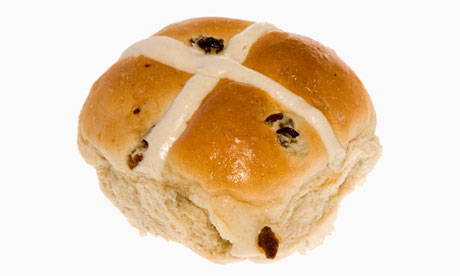Holidays are over for school-goers and teachers and nearly over for high school students and it is high time for most people (including myself) to go back to school. I consider it would be a good idea to write a post about the school system in England. Let's begin !:
Pre-school education (kindergarten - not 'kindergarden'): 3-5 year olds. This is not compulsory. Children may attend reception classes to prepare themselves for the school. This stage is sometimes referred as 'Key Stage 0'.
Compulsory education: 5-18 year olds. Formerly, Compulsory Secondary Education lasted until the students' sixteen birthday, but it has been recently extended until 18. Compulsory education is divided into five different stages, at the end of which there will a Standard Assessment Test:
a) Key Stage 1, for students aged 5-7.
b) Key Stage 2: for students aged 7-11. This is the last stage in Primary Education and pupils leave Elementary schools and go to High Schools (or Middle Schools).
c) Key Stage 3: for students aged 11-14. This is the first stage of Secondary Education, and it is often studied in High-Schools.
d) Key Stage 4: for students aged 14-16. Ah the end of this stage, students get a GCSE (General Certificate of Secondary Education).
e) Key Stage 5 (Sixth Form): for students aged 16-18. At the end of this stage, students must face the A-levels exams and they get the GCE (General Certificate of Education).
Tertiary Education or Higher Education: This education takes place in Vocational Schools (Vocational Training, 'FP' in Spanish) , universities, academies or colleges, where you Grade Point Average is taken into account.
Types of school
1. State schools: Schools funded by the Local Educational Authority where students do not have to pay any tuition fees. Remember not to use the term 'public school' because this term refers to a private school. There are different types:
- Community Schools: entirely state-funded.
- Foundation Schools: State-funded but the governing body of the school has some responsibilities in decision-taking.
- Academy Schools: started by the funding of private enterprises or ONGs and free from local control.
- Free Schools: set up by parents, teachers and other investors and free from local control.
- Voluntary Aided Schools: The school is usually owned by a charitable foundation (normally linked somehow to the church). Its governing body takes all the decisions, but it also recieves funding form the state ('colegio concertado' in Spanish)
- Voluntary Controlled Schools: Owned by a charitable foundation, but the staff and other decisions are made by the local authorities.
- Comprehensive Schools: A non-selective secondary school. Students often attend these school when they are 11.
- Grammar Schools: A selective grammar school with entry exams for the selection of pupils.
- Middle Schools: An intermediate stage between Elementary Schools and High Schools.
2. Independent schools (private schools): Independent from the government. Students have to pay tuition fees (usually very high). There are different types:
a) Public schools: The most expensive private schools for students aged 13-18.
b) Prep schools: Designed to prepare students to cope with university studies.
c) Boarding schools: Private schools with lodgings where pupils usually sleep and spend the day. Eton is the most famous boarding school where notorious celebrities have studied. In this link you can see its outrageous fees.
d) Military Academies: Their programme includes a combination between military training and academic studies.
e) Day schools: A private school where students receive education during the day and come back home to sleep. It's the opposing term to 'boarding school'.
Differences between the educational system in England and Spain:
- Compulsory Education begins at 5 and finishes at 18 in England, whereas in Spain it begins at 6 and finishes at 16.
- Students have to attend afternoon classes in England, and they have lunch at school. However, in Spain, students do not generally have to attend classes in the afternoon (except in some Elementary Schools in some communities).
- There are more types of schools in the English educational systems.
- The subjects are similar but in England there are sometimes different subjects such as drama, sports, or home economics.
- The academic year in England is different. Schools begin in August or September and finish in July with mid-term holidays. There are three terms which usually receive a name. In Spain, classes begin in mid-September and finish in June due to the weather conditions (it is extremely hot to teach during the summer).
- In English, more often than not, it is compulsory for students to wear a school uniform and teachers should wear smart clothes to school.
- The grading system is rather different in England. In England, they use letters (rather than numbers) to grade. Here you have some equivalencies, but there are small variations depending on the schools and colleges:
A= 80-100 % (Sobresaliente)
B= 70-79 % (Notable)
C= 60-69 % (Bien)
D= 50-59 % (Suficiente)
E: 40-49 % (Insuficiente)
F: 0-39 % (Deficiente)
Did you enjoy the educational system in England ? I hope you did. Now if you are one the unlucky ones that have to get back to school and start doing exams, think positively and do your best. If you do, soon you will be on holidays again.
P.S. Here you have a list of the most common abbreviations dealing with the educational system of the UK:
L.E.A. : Local Educational Authorities
C. S. E. : Compulsory Secondary Education
KS1: Key Stage 1
G. C. S. E: General Certificate of Secondary Education
G. C. E. : General Certificate of Education
G. P. A: Grade Point Average
SATs: Standard Assessment Tests
G. N. V. Q. : General National Vocational Qualification



